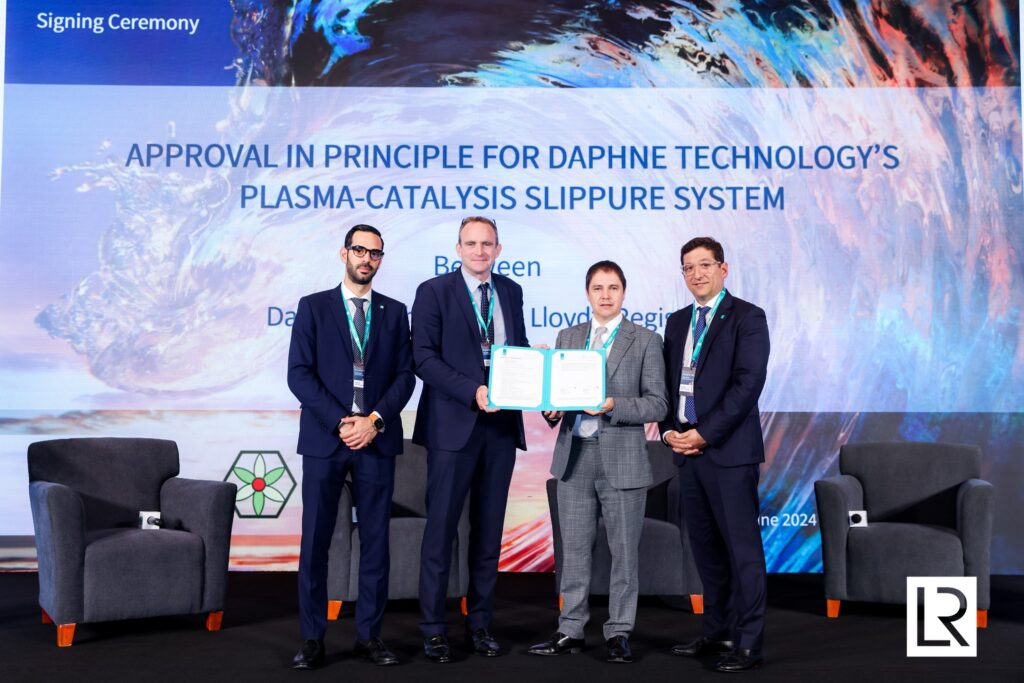Daphne Technology’s innovative SlipPure™ system has received Approval in Principle (AiP) from Lloyd’s Register (LR) for its plasma catalyst technology. The solution improves efficiency by reducing plasma power consumption, significantly reducing methane slip at exhaust temperatures much lower than those required for catalyst-only solutions.
Having previously undergone AiP in a plasma-only configuration, the advanced SlipPure™ system has now undergone the full plasma catalytic process and undergone several rigorous test campaigns using exhaust gases generated from a land-based test engine (746kW lean-burn spark-ignition engine type RR MTU 8V4000M55RN) installed at the Marine Centre of the Flensburg University of Applied Sciences in Germany.
Methane slip is a major source of greenhouse gas emissions and has a global warming potential 28 times that of CO2 over a 100-year period.
Safe operation of the WPP power source in a plasma-only system was demonstrated over approximately 75 hours of operation in January 2023. Earlier this year, the plasma catalytic process was evaluated over approximately 100 hours of operation, with LR seeing 4.0 g/kWh of methane slip removal from exhaust gases at a minimum of 380°C (62% methane slip reduction at 75% load).
“We are once again honoured to work closely with Lloyd’s Register and are delighted to receive this AiP,” said Dr Mario Michan, CEO and Founder of Daphne Technology. “This in-principle approval validates our innovative approach and the demonstrated results are testament to the effectiveness and reliability of our SlipPure™ system. The performance results demonstrate the market readiness of our technology and its impact on reducing methane emissions.”
Panos Mitrou, global gas director at Lloyd’s Register, said: “LR has worked with Daphne Technology for a number of years and recent tests show that the company’s plasma catalyst technology is raising the bar in helping companies significantly mitigate methane slip in the offshore and onshore oil and gas industries.”

